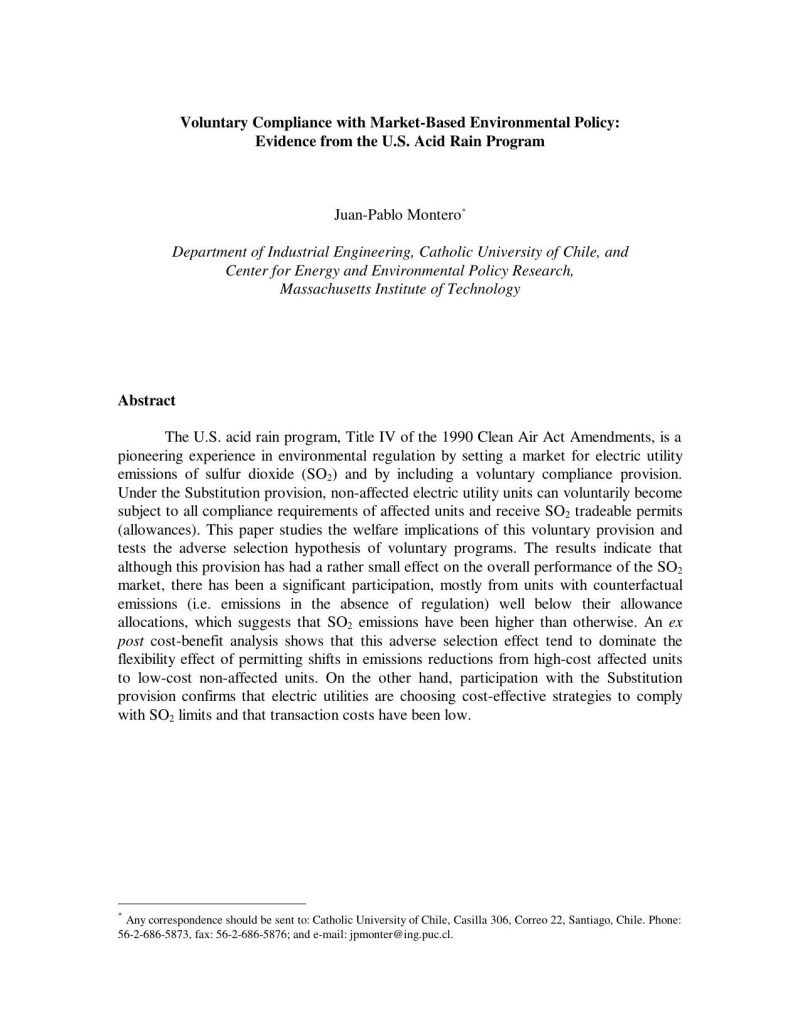Voluntary Compliance with Market-Based Environment Policy: Evidence from the U.S. Acid Rain Program
Juan-Pablo Montero
Jan-98
The U.S. acid rain program, Title IV of the 1990 Clean Air Act Amendments, is a pioneering experience in environmental regulation by setting a market for electric utility emissions of sulfur dioxide (SO2) and by including a voluntary compliance provision. Under the Substitution provision, non-affected electric utility units can voluntarily become subject to all compliance requirements of affected units and receive SO2 tradeable permits (allowances). This paper studies the welfare implications of this voluntary provision and tests the adverse selection hypothesis of voluntary programs. The results indicate that although this provision has had a rather small effect on the overall performance of the SO2 market, there has been a significant participation, mostly from units with counterfactual emissions (i.e. emissions in the absence of regulation) well below their allowance allocations, which suggests that SO2 emissions have been higher than otherwise. An ex post cost-benefit analysis shows that this adverse selection effect tend to dominate the flexibility effect of permitting shifts in emissions reductions from high-cost affected units to low-cost non-affected units. On the other hand, participation with the Substitution provision confirms that electric utilities are choosing cost-effective strategies to comply with SO2 limits and that transaction costs have been low.



